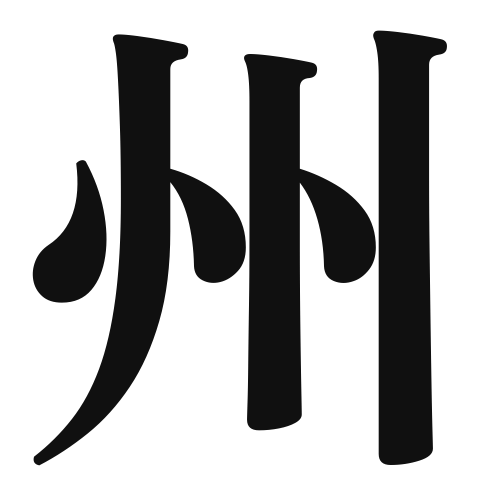1. Overview of Meaning
The kanji “州” (shū) primarily means “state” or “province.” It refers to a political division within a country, often used to describe regions with their own governance.
2. Formation and Radical
Formation of the Kanji: The kanji “州” is a phonetic-ideographic character (形声文字). It combines the meaning of a river or water (the left part, “水”) with a phonetic component (the right part, “周”), which suggests the sound.
Radical: The radical of “州” is “水” (water), indicating its connection to geographical features, particularly rivers and bodies of water.
3. Examples of Usage
Common Words and Phrases: Some frequently used terms include “州立” (shūritsu – state-run) and “州知事” (shūchiji – governor of a state).
Example Sentences in Daily Conversation:
- 「アメリカには50の州があります。」(There are 50 states in America.)
- 「彼はカリフォルニア州に住んでいます。」(He lives in California state.)
4. Synonyms and Antonyms
Similar Kanji: A similar kanji is “県” (ken), which also means a region but typically refers to a smaller administrative division than a state.
Opposite Kanji: An antonym could be “国” (kuni), meaning “country,” which represents a larger political entity than a state.
5. Cultural and Historical Background
Relation to Japanese Culture: The concept of “州” is significant in Japan, where the country is divided into 47 prefectures, each with its own local government, similar to states.
Proverbs and Idioms: One relevant saying is “三人寄れば文殊の知恵” (sannin yoreba monju no chie), which means that when three people gather, they can share wisdom, reflecting the idea of collaboration within regions or states.
